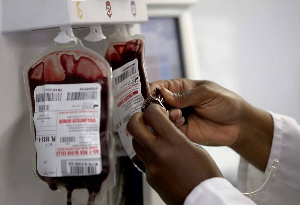Opinions of Friday, 14 July 2023
Columnist: Dr. Lucy Asamoah Akuoku
The status of blood supply in sub- Saharan Africa: Barriers and health impact
Sub-Saharan African countries continue to struggle with chronic, year-round blood shortages, limiting their ability to support patients and deliver on the health-related Sustainable Development Goals (SDGs).
Most blood recipients in sub-Saharan African countries are children and women around the time of childbirth, So achieving the health-related SDGs depends on blood and blood product availability to reduce maternal mortality, end preventable deaths of newborn babies and children younger than 5 years, and achieve universal health coverage.
Blood shortages in sub-Saharan Africa can have devastating consequences. An estimated 70% of 287 000 pregnancy-associated deaths in the world in 2020 occurred in sub-Saharan African countries, predominantly due to obstetric haemorrhage. Insufficient blood supply for transfusion contributes substantially to such maternal deaths in hospitals in sub-Saharan Africa.
Blood transfusions are also essential for managing sub-Saharan Africa's high rates of traffic accidents and childhood anemia, which is commonly due to infections such as malaria, helminthiasis, and haemoglobinopathies. Sub-Saharan Africa is home to more than 75% of the 300 000–400 000 babies born each year
globally with sickle cell disease; Blood shortages contribute to 50–90% of these children dying before their fifth birthday.
As health-care systems develop in sub-Saharan African countries, we can also expect increased blood needs for advanced cancer therapies, such as transplantation and cell therapy, organ transplant, dialysis, and cardiac surgeries.
Entertainment










